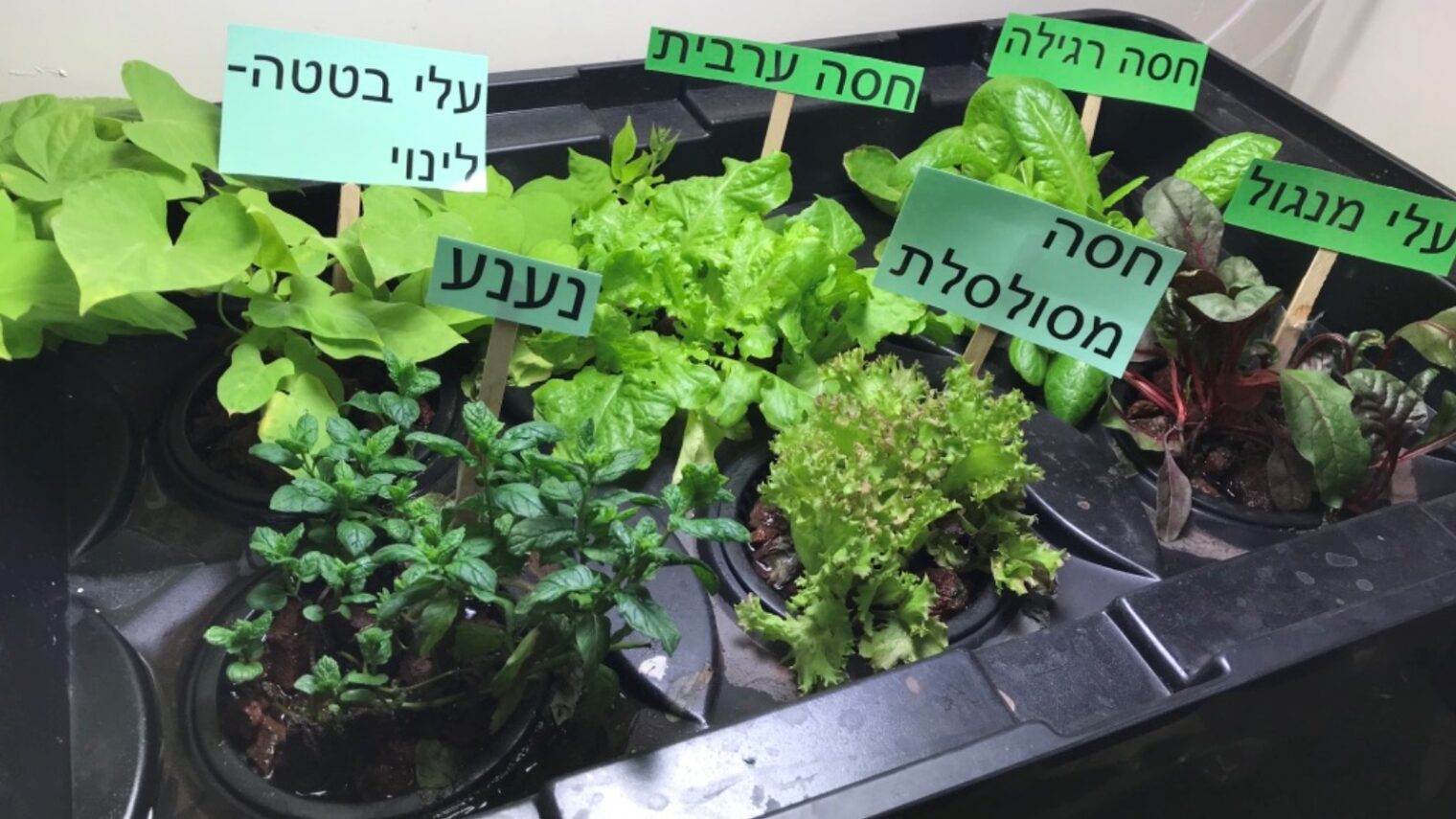Photos of smiling kids planting, picking and eating vegetables line the hallways of a school for girls in an impoverished Jerusalem neighborhood. The pictures were taken in the hydroponic hothouse the girls have tended for the past three years on their concrete playground.
Many of their families can’t afford veggies or haven’t been taught about their essential nutritional value, leaving children undernourished and unaware of the miraculous journey from seed to salad, says Shulamit, the teacher in charge of the project.
The nonprofit StartUpRoots provides the funds, equipment and expertise for the hothouse, which nurtures some 1,400 greens and herbs each month. The students eat them, cook with them and even make creams and soaps from them.
“I think this is a project that belongs in every school. I love it so much,” Shulamit tells ISRAEL21c.
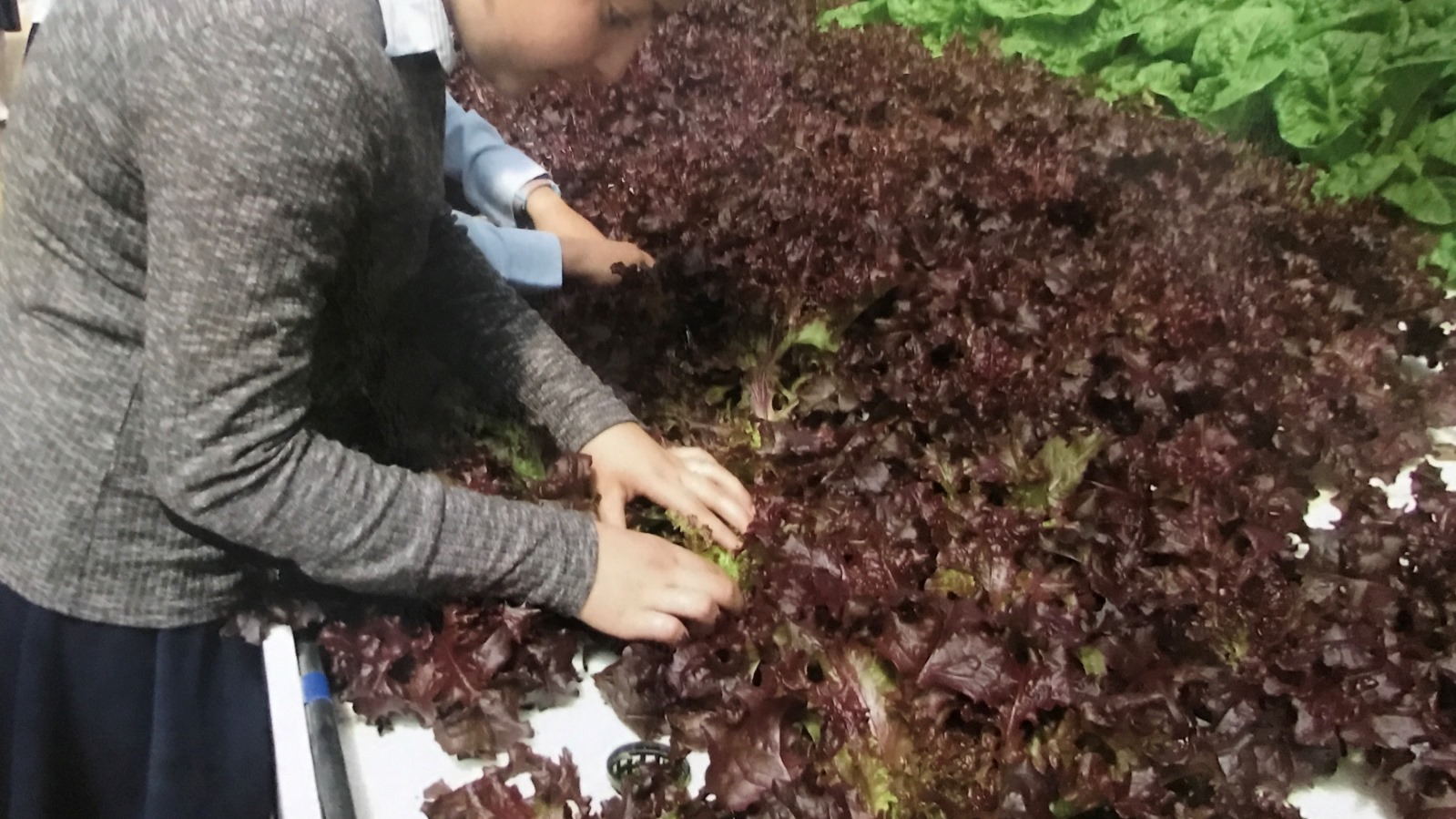
Lawyer, entrepreneur and former teacher Robin Katz founded StartUpRoots after investigating how Israeli produce could be grown locally without pesticides and while educating and empowering students in “poverty pockets” — including the ultra-Orthodox (Haredi) population characterized by large families and small incomes.
“The kids are at a disadvantage academically when they don’t have proper nutrition. And a lot of health problems occur when you don’t know what foods to choose or just choose what is cheap,” says Katz, who moved to Ra’anana from Chicago in 2007.
She didn’t want children only to eat more veggies but to take a hand in growing them organically and sustainably. Katz found the model she was seeking when she visited a hydroponic farm in northern Israel
“They had the cleanest, best-tasting vegetables I’ve ever had, and I’ve traveled extensively,” she tells ISRAEL21c.
Katz found the opportunity to put her idea into action when she was asked to help raise money for a school lunch program at the girls’ school in the Bukharim neighborhood of Jerusalem. She proposed building a small hydroponic facility in a corner of the schoolyard for the girls to grow their own vegetables.
“I was worried about taking space from the playground but the principal said, ‘No, take the back 100 meters.’ That was enough to grow 1,400 plants a month, and we’re working on ways to increase the yield exponentially,” says Katz.
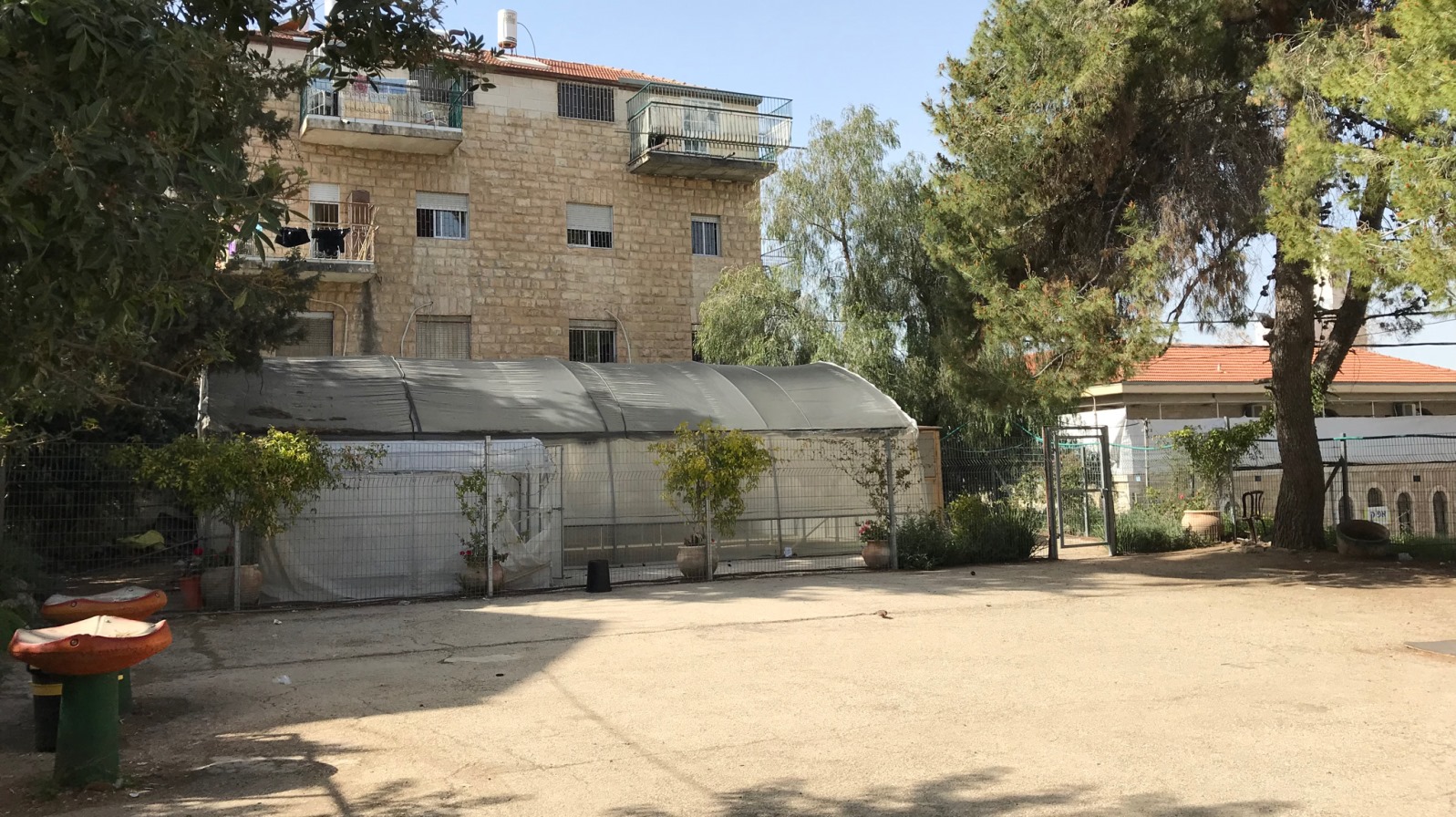
The kids grow by growing
Supported by private donors, StartUpRoots provides the equipment, the services of professional agronomists and nutritionists, and a chef who comes after the first harvest to cook with the kids.
Katz and a team of expert volunteers developed a holistic curriculum for teachers like Shulamit to get ideas for lesson plans covering topics from healthy eating to the environmental impact of food production.
“I sat down with Israeli educators to talk about the objectives and goals of the program and they said, ‘Relax, Robin, the kids will grow by growing. They’ll see the direct relationship between their effort and the outcome.’ The life lessons they learn include personal responsibility and understanding that progress is gradual.”
StartUpRoots installed another hydroponic garden at a girls’ school in the Jerusalem neighborhood of Neve Ya’akov. “They didn’t have room outside, so we built an indoor farm with LED lighting, which we are currently expanding in a former library, utilizing a state-of-the-art vertical design,” says Katz.
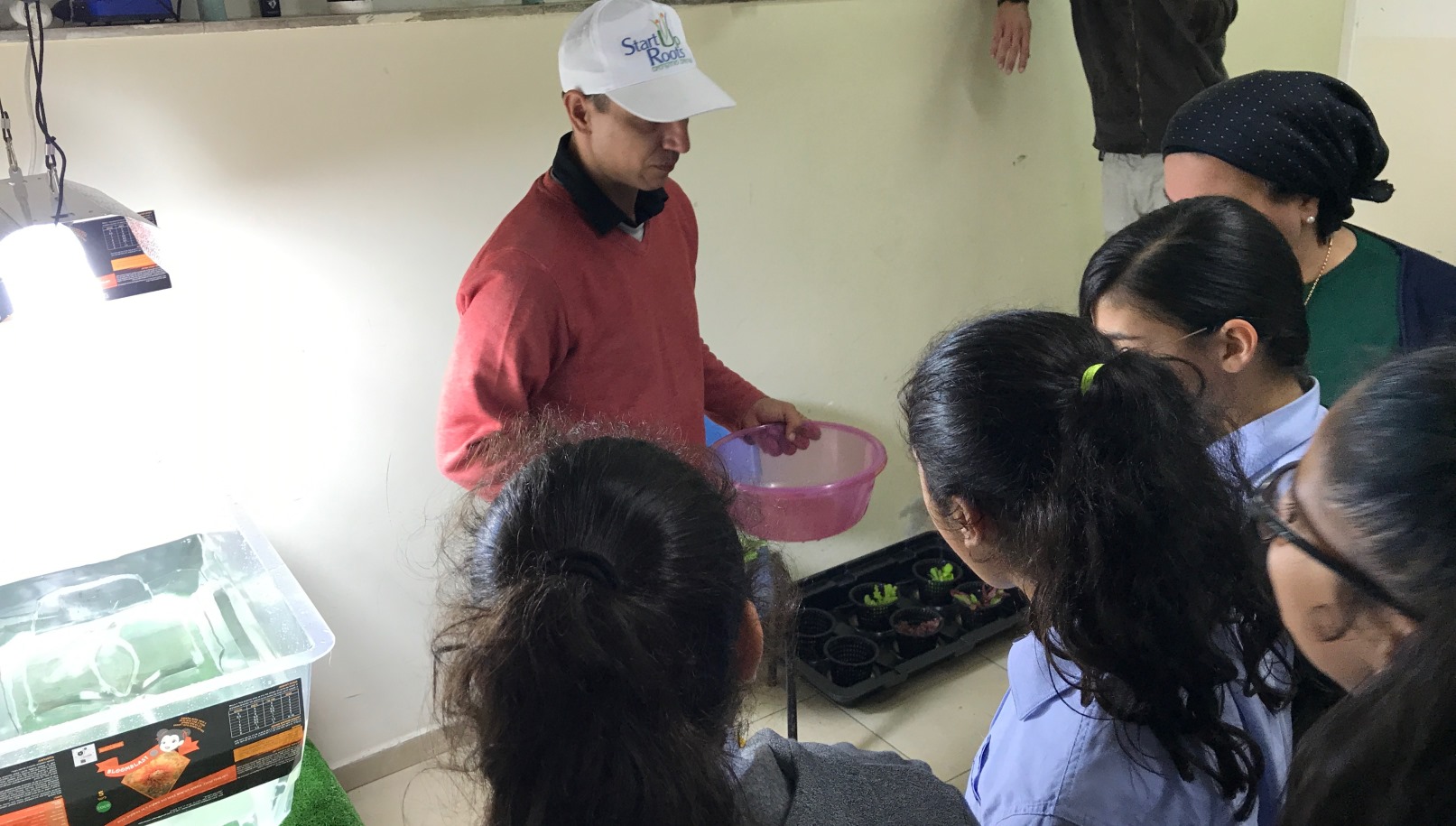
The program requires that students spend at least 20 minutes every day tending the system and the plants, starting with dropping single seeds in a growing medium and making sure that the plants in the closed water system have the right levels of acidity, nutrients and oxygen.
“The hydroponic method uses 90 percent less water than in-ground farming because nothing is getting absorbed in the soil and the water is recycled,” Katz explains. “The roots get nutrition directly from water and therefore grow faster. There are also few insects because it’s the dirt that attracts pests.”
“It’s a lot fresher and healthier,” adds Ronny Avidan, an Israeli agronomist who joined StartUpRoots in 2015 after completing agricultural projects in Africa. “I want to help promote the ideology of urban organic, pest-free agriculture and sustainability,” he tells ISRAEL21c.
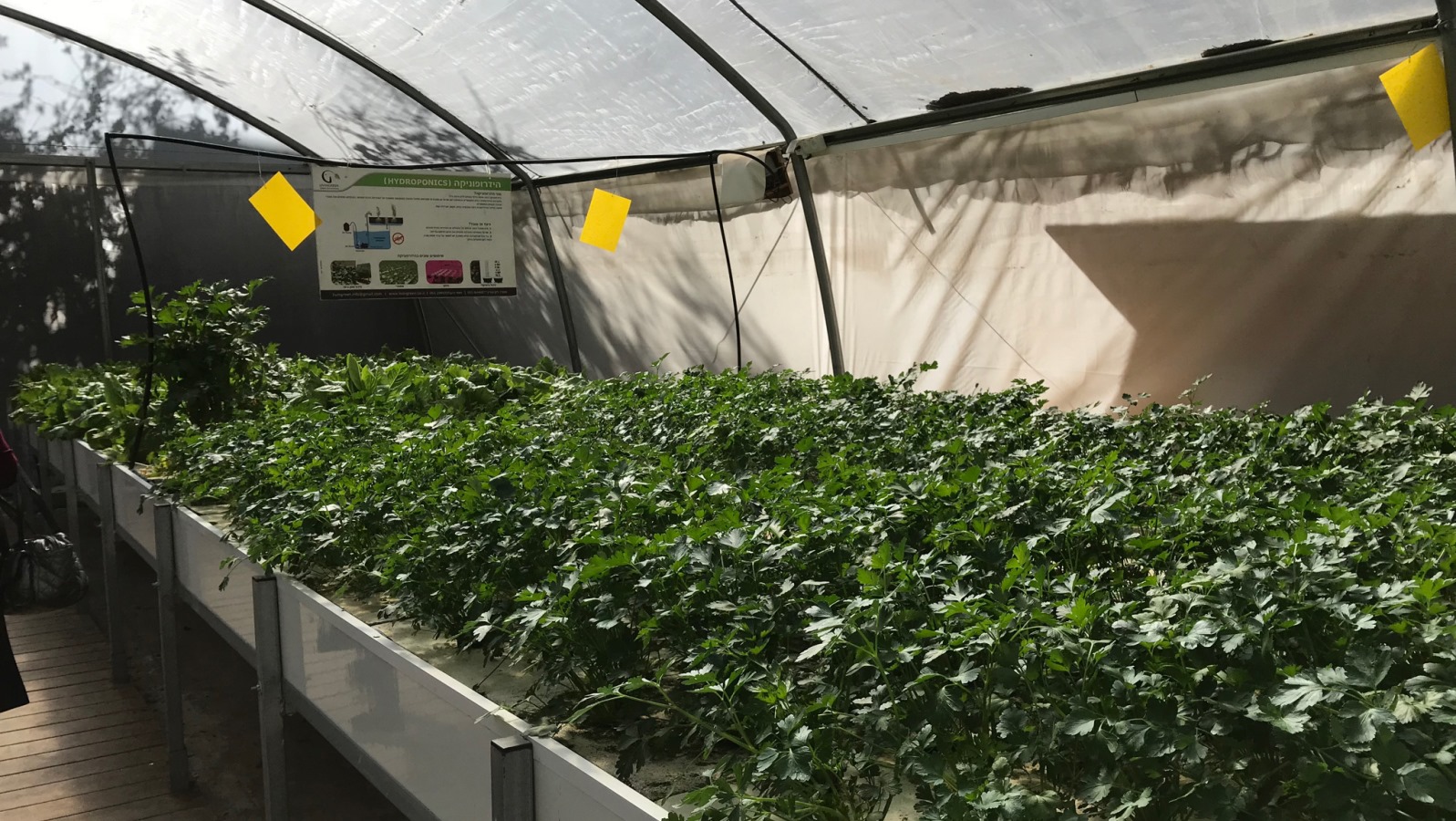
Creating a sense of value
The hothouse has become part of Shulamit’s science curriculum for grades 1-7. The girls record their activities and observations after performing their assigned tasks.
The leafy greens grow so abundantly that the school began selling them for a token amount to the girls’ families. “When you charge a bit of money, you create a sense of value,” Shulamit explains.
She says the excitement created by the project has led directly to higher enrollment as children share their enthusiasm with parents and friends.
The girls also planted a conventional garden in another corner of the schoolyard along with a compost pile. Among the produce growing there are sunflowers, the seeds of which are a favorite Israeli snack.
“When they buy sunflower seeds in a package in the store, they think they appeared from nowhere. Now they understand that these are natural seeds that God created,” says Shulamit.
Katz says some of the aspects of StartUpRoots are found in American programs like Virginia-based Edible Education.
“But we go beyond those programs. In Israel we don’t have water and land to waste, and we have increasing populations. And yet if we can come out of those challenges shining it should inspire others to do the same.”
The program is not meant only for disadvantaged children. Katz is working with her hometown and partners Matan and Leket (Israel’s national food bank) to transform an unused area into a hydroponic community garden that she hopes will blossom into a farmers market.
Katz is in discussions with additional schools to join StartUpRoots. The no-carbon-footprint hothouses could be put on school rooftops or basements.
“To change dietary habits you first have to change consumer demand and the best way to do that is to start with children,” she says.
For more information, click here




